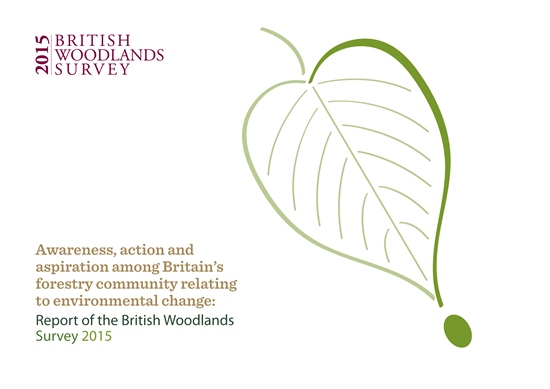2015 British Woodlands Survey Report

Woodlands cover 13% of the UK’s land area and almost three quarters (2,283,000 ha) are in private ownership, yet previously little was known about the awareness of woodland owners and managers, and forestry professionals, concerning adaptation to environmental change. Earlier in 2015 a group of ten leading forestry and woodland organisations collaborated to run a national survey to explore awareness, action and aspiration relating to environmental change among private woodland owners and managers, and forestry professionals. The research was funded by Forestry Commission England, Sylva Foundation, University of Oxford and the Woodland Trust. The report of the survey’s findings has been published. Findings include:
- 1509 woodland owners, managers, professional foresters and tree nursery businesses responded to the survey, representing 11% of all privately-owned woodlands in the UK.
- 9/10 respondents had experienced an impact from environmental change in recent years, ranging from an outbreak of disease or pests, fire or flooding, to extreme wind events.
- Overall a small majority (52%) of respondents thought that climate change would impact the UK’s forests in future, though 34% were uncertain. Among specific groups, professional foresters were more convinced (70%) that climate change would impact the UK’s forests than woodland owners (45%).
- Most woodland owners were positive about the future for their woodland, although ash dieback featured strongly as a major issue of concern.
- A minority of woodland owners are taking adequate steps to minimise risks from pests and pathogens by implementing best practice guidelines for biosecurity.
Writing in the Foreword, Chairman of the Forestry Commission, Sir Harry Studholme, commented: “For the first time, we have on record the ‘voice’ of more than one and a half thousand woodland owners and managers. This is critical as, if we want to make real change on the ground, this will have to be done by landowners and managers themselves. The results tell us that there is much work to do, with little progress seen on implementing adaptation to date. It is, however, pleasing to see that thought is being given to climate change and resilience.”
Lead author of the report, Chief Executive of the Sylva Foundation, Dr Gabriel Hemery, said:
“Whilst there were some positive indicators of progress in the forestry sector, it is clear that current pest and disease outbreaks are dominating the resilience agenda, with less thought given to the longer term effects of environmental change. Woodland owners and managers may not be aware of the magnitude of change that is predicted.”
He continued: “I am deeply concerned that only a small majority of woodland owners believed that climate change would impact the UK’s forests in future, and by the high degree of uncertainty expressed about this. Making improvements to our communications with woodland owners and managers must now be an urgent priority.”
“It is clear that some brave decisions will need to be made by individual woodland owners and managers, as well as the forestry sector as a whole, if our woodlands are to thrive long into the future.”
To view the report, visit www.sylva.org.uk/forestryhorizons/bws2015






